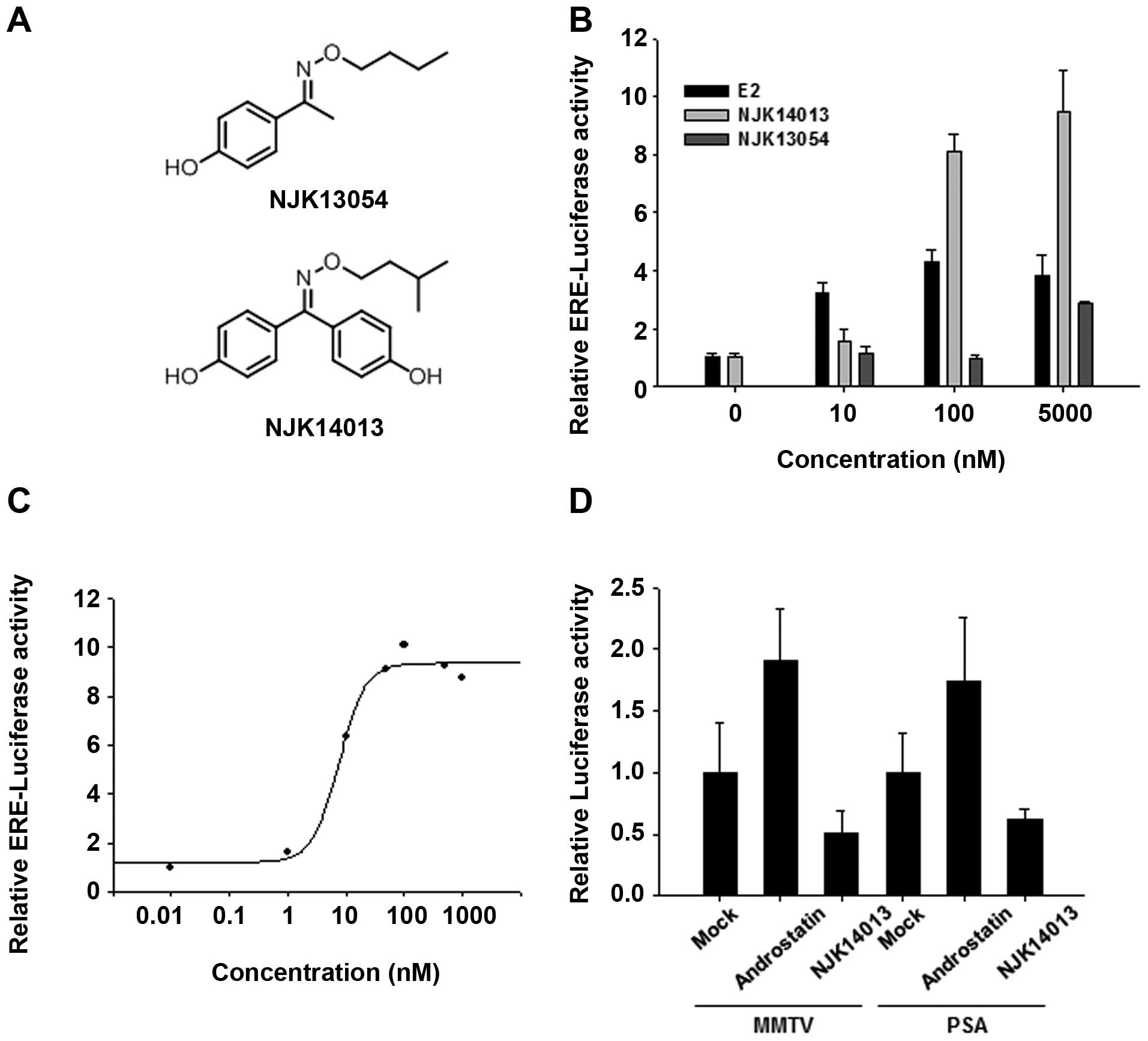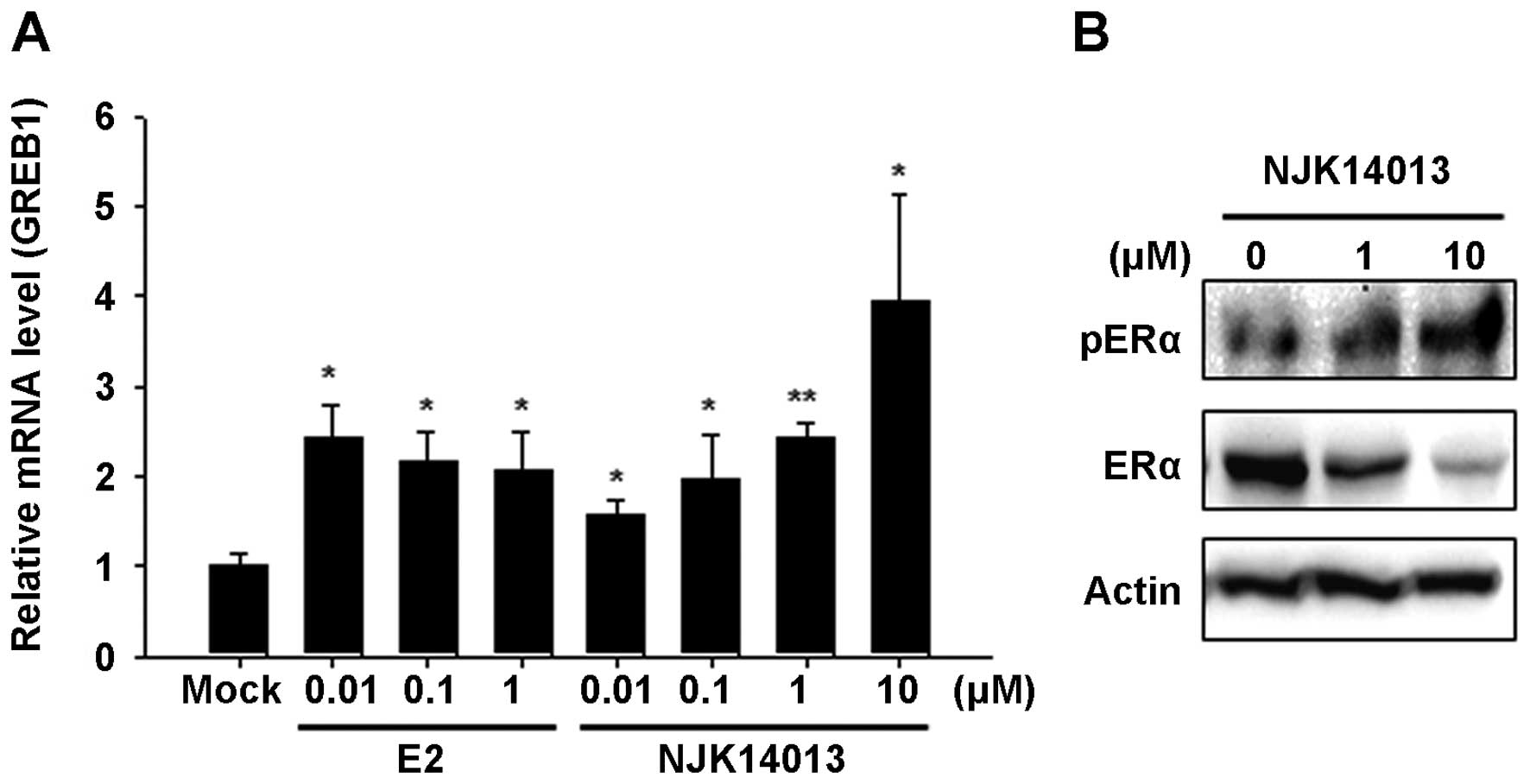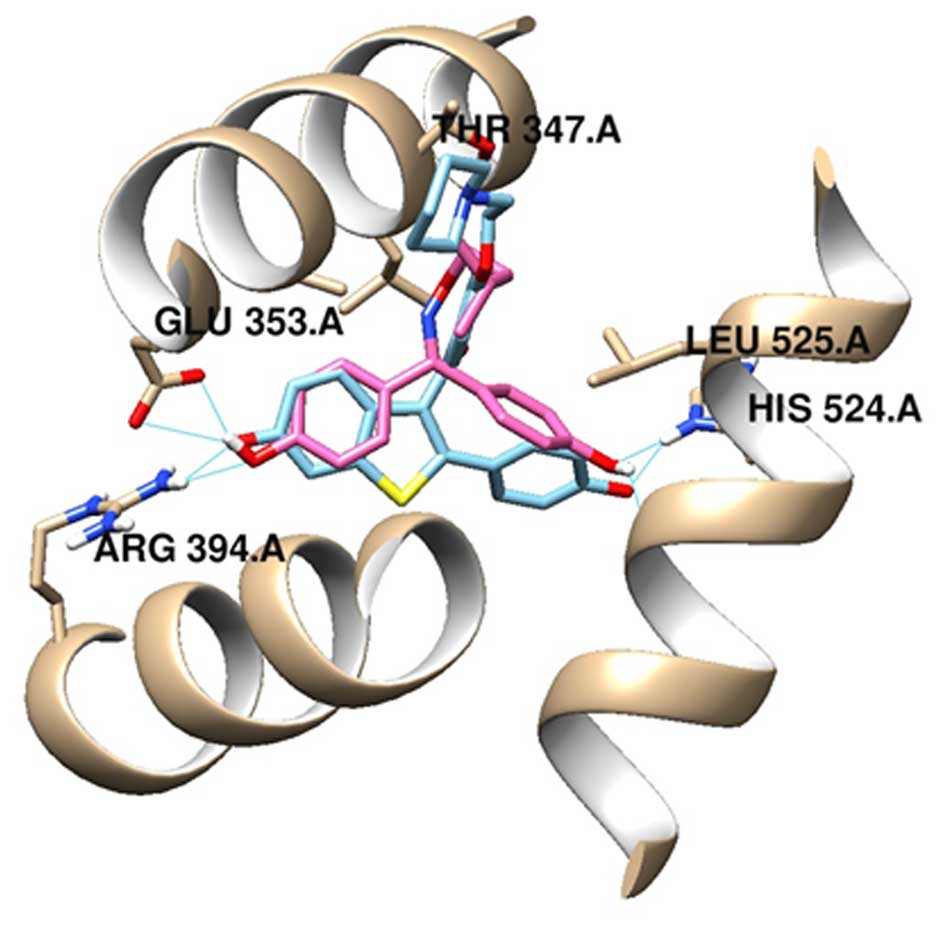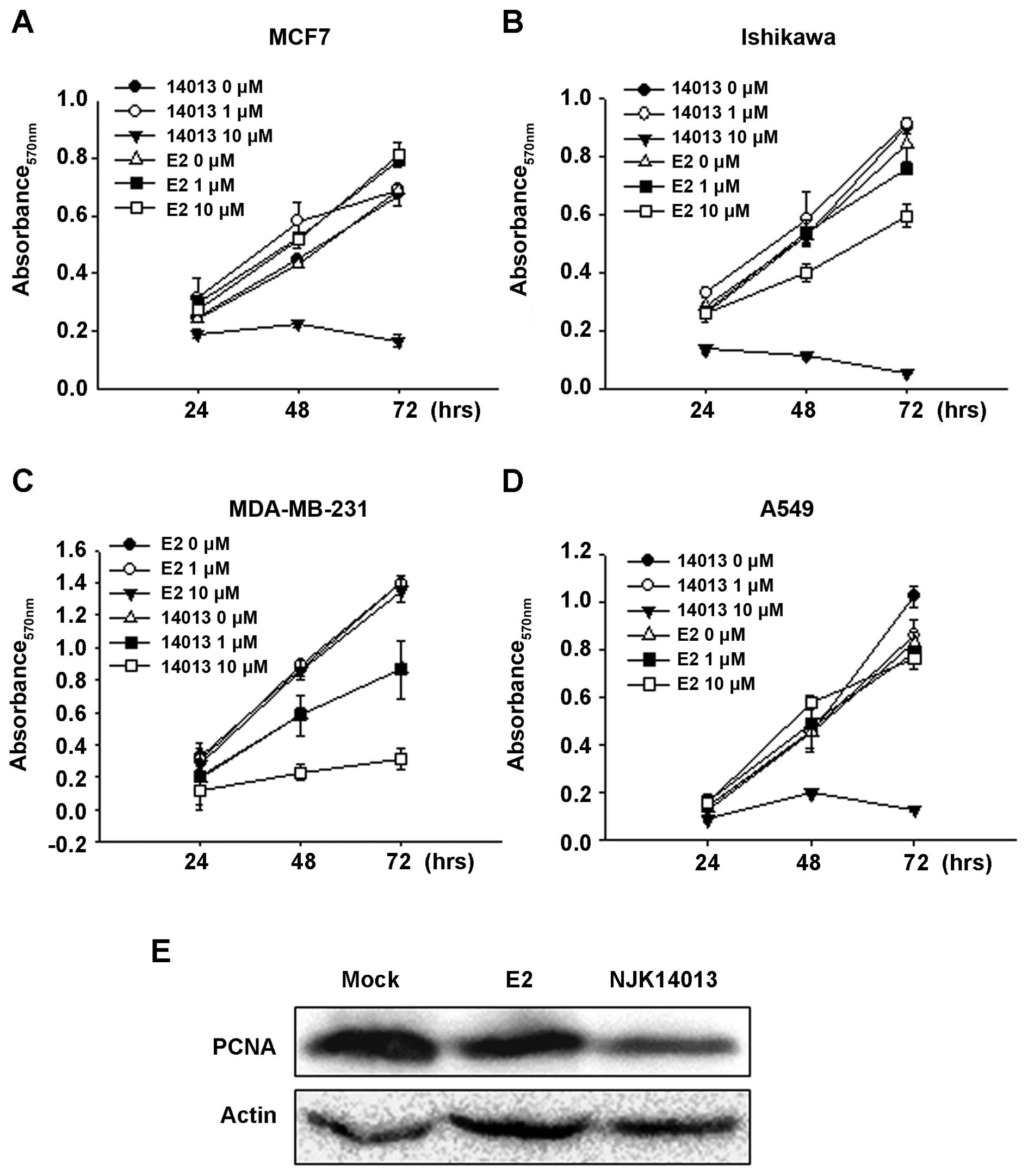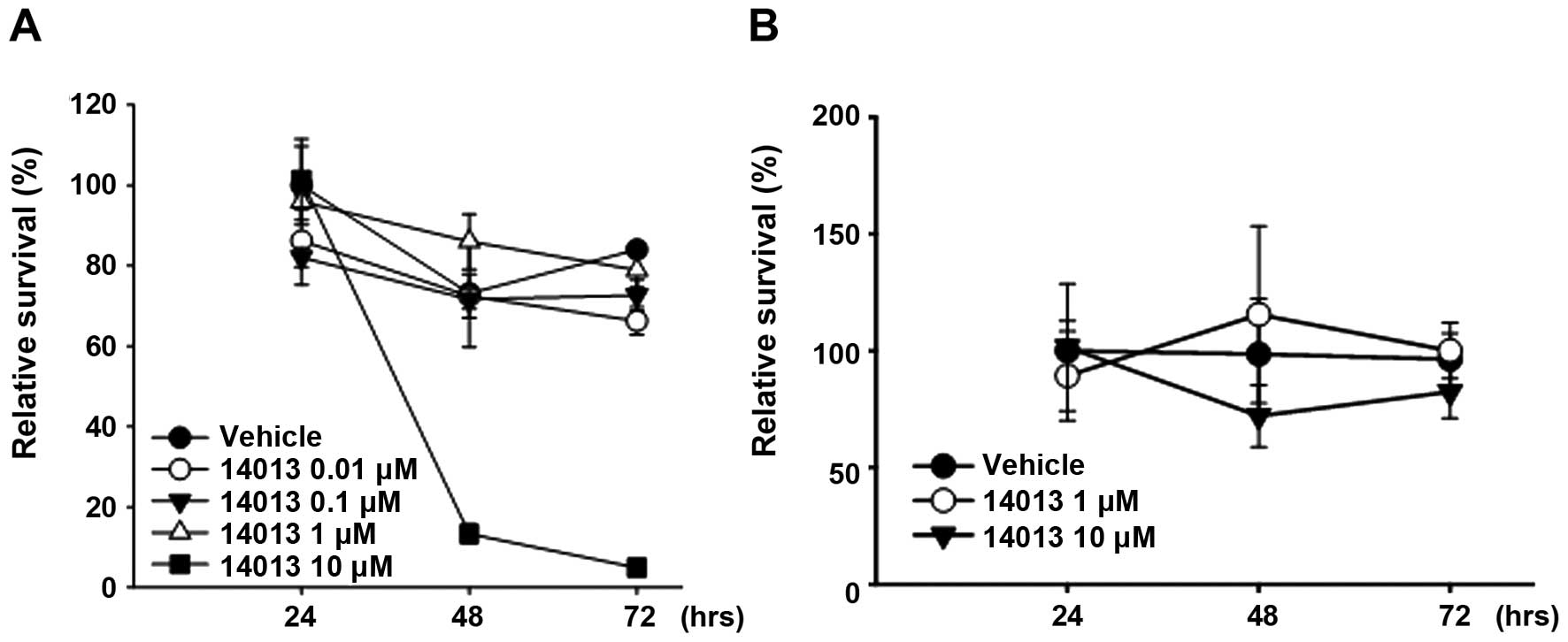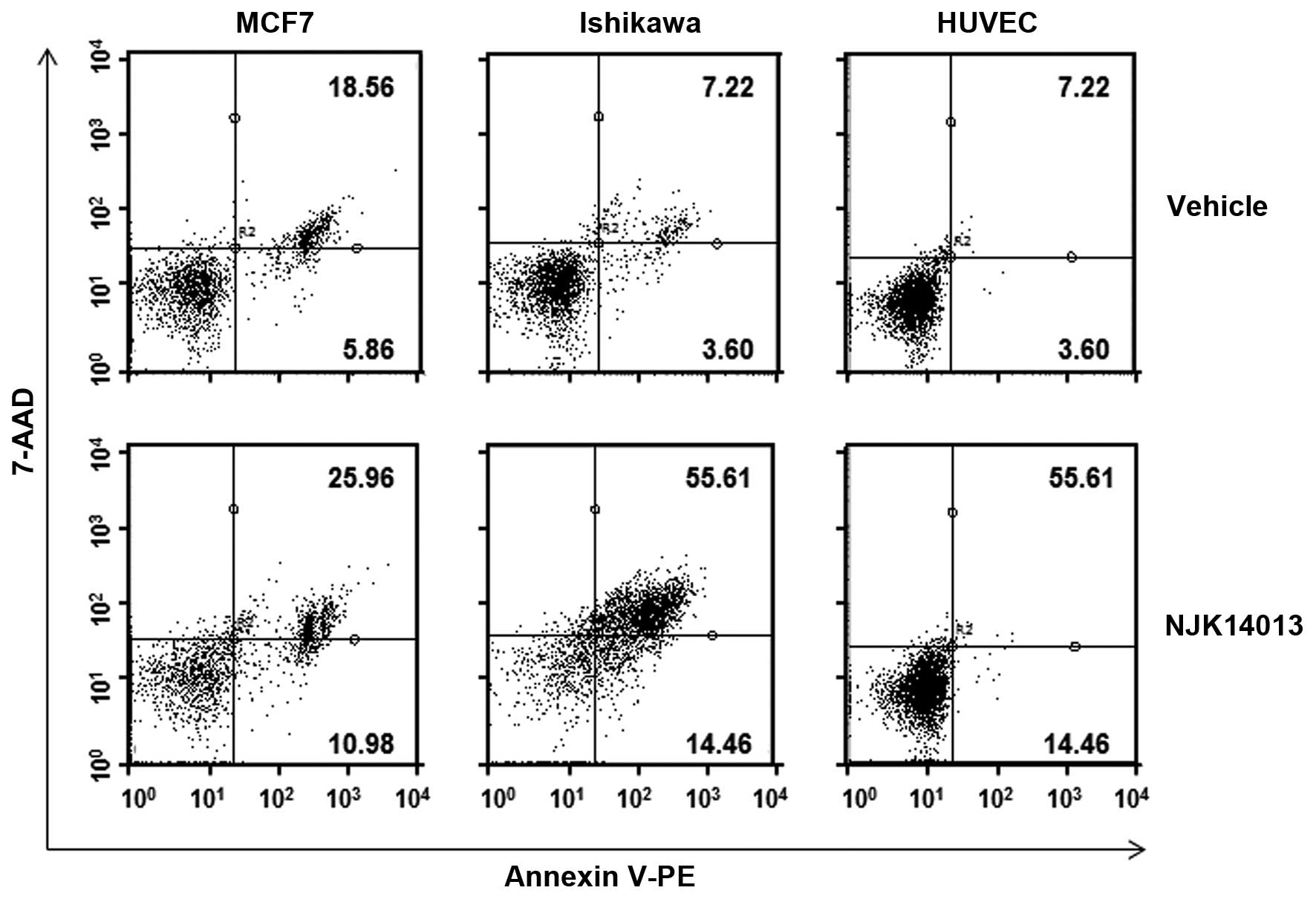|
1
|
Mirkin S, Archer DF, Pickar JH and Komm
BS: Recent advances help understand and improve the safety of
menopausal therapies. Menopause. 22:351–360. 2015. View Article : Google Scholar
|
|
2
|
Martinkovich S, Shah D, Planey SL and
Arnott JA: Selective estrogen receptor modulators: Tissue
specificity and clinical utility. Clin Interv Aging. 9:1437–1452.
2014.PubMed/NCBI
|
|
3
|
Chedraui P, Pérez-López FR, Hidalgo L,
Villacreses D, Domínguez A, Escobar GS, Genazzani AR and Simoncini
T; Research Group for the Omega Women’s Health Project. Evaluation
of the presence and severity of menopausal symptoms among
postmenopausal women screened for the metabolic syndrome. Gynecol
Endocrinol. Oct 27;2014 (Epub ahead of print). 1–7. 2014.PubMed/NCBI
|
|
4
|
Ismailoğlu O, Oral B, Gorgulu A, Sutcu R
and Demir N: Neuroprotective effects of tamoxifen on experimental
spinal cord injury in rats. J Clin Neurosci. 17:1306–1310. 2010.
View Article : Google Scholar
|
|
5
|
Ishihara Y, Itoh K, Ishida A and Yamazaki
T: Selective estrogen-receptor modulators suppress microglial
activation and neuronal cell death via an estrogen
receptor-dependent pathway. J Steroid Biochem Mol Biol. 145:85–93.
2015. View Article : Google Scholar
|
|
6
|
Pietras RJ: Biologic basis of sequential
and combination therapies for hormone-responsive breast cancer.
Oncologist. 11:704–717. 2006. View Article : Google Scholar : PubMed/NCBI
|
|
7
|
Kuss JT, Muss HB, Hoen H and Case LD:
Tamoxifen as initial endocrine therapy for metastatic breast
cancer: Long term follow-up of two Piedmont Oncology Association
(POA) trials. Breast Cancer Res Treat. 42:265–274. 1997. View Article : Google Scholar : PubMed/NCBI
|
|
8
|
Vogel CL, Johnston MA, Capers C and
Braccia D: Toremifene for breast cancer: A review of 20 years of
data. Clin Breast Cancer. 14:1–9. 2014. View Article : Google Scholar : PubMed/NCBI
|
|
9
|
Viedma-Rodríguez R, Baiza-Gutman L,
Salamanca-Gómez F, Diaz-Zaragoza M, Martínez-Hernández G, Ruiz
Esparza-Garrido R, Velázquez-Flores MA and Arenas-Aranda D:
Mechanisms associated with resistance to tamoxifen in estrogen
receptor-positive breast cancer (review). Oncol Rep. 32:3–15.
2014.PubMed/NCBI
|
|
10
|
Kurebayashi J: Endocrine-resistant breast
cancer: Underlying mechanisms and strategies for overcoming
resistance. Breast Cancer. 10:112–119. 2003. View Article : Google Scholar : PubMed/NCBI
|
|
11
|
Decensi A, Maisonneuve P, Rotmensz N,
Bettega D, Costa A, Sacchini V, Salvioni A, Travaglini R, Oliviero
P, D’Aiuto G, et al; Italian Tamoxifen Study Group. Effect of
tamoxifen on venous thromboembolic events in a breast cancer
prevention trial. Circulation. 111:650–656. 2005. View Article : Google Scholar : PubMed/NCBI
|
|
12
|
Bonneterre J, Thürlimann B, Robertson JF,
Krzakowski M, Mauriac L, Koralewski P, Vergote I, Webster A,
Steinberg M and von Euler M: Anastrozole versus tamoxifen as
first-line therapy for advanced breast cancer in 668 postmenopausal
women: Results of the Tamoxifen or Arimidex Randomized Group
Efficacy and Tolerability study. J Clin Oncol. 18:3748–3757.
2000.PubMed/NCBI
|
|
13
|
Nagy E, Gajjar KB, Patel II, Taylor S,
Martin-Hirsch PL, Stringfellow HF, Martin FL and Phillips DH: MGMT
promoter hypermethylation and K-RAS, PTEN and TP53 mutations in
tamoxifen-exposed and non-exposed endometrial cancer cases. Br J
Cancer. 110:2874–2880. 2014. View Article : Google Scholar : PubMed/NCBI
|
|
14
|
Avis NE, Crawford SL and McKinlay SM:
Psychosocial, behavioral, and health factors related to menopause
symptomatology. Womens Health. 3:103–120. 1997.PubMed/NCBI
|
|
15
|
Buster JE: Transdermal menopausal hormone
therapy: Delivery through skin changes the rules. Expert Opin
Pharmacother. 11:1489–1499. 2010. View Article : Google Scholar : PubMed/NCBI
|
|
16
|
Jordan VC: The new biology of
estrogen-induced apoptosis applied to treat and prevent breast
cancer. Endocr Relat Cancer. 22:R1–R31. 2015. View Article : Google Scholar
|
|
17
|
Kelly JP, Kaufman DW, Rosenberg L, Kelley
K, Cooper SG and Mitchell AA: Use of postmenopausal hormone therapy
since the Women’s Health Initiative findings. Pharmacoepidemiol
Drug Saf. 14:837–842. 2005. View
Article : Google Scholar : PubMed/NCBI
|
|
18
|
Rossouw JE, Anderson GL, Prentice RL,
LaCroix AZ, Kooperberg C, Stefanick ML, Jackson RD, Beresford SA,
Howard BV, Johnson KC, et al; Writing Group for the Women’s Health
Initiative Investigators. Risks and benefits of estrogen plus
progestin in healthy postmenopausal women: Principal results From
the Women’s Health Initiative randomized controlled trial. JAMA.
288:321–333. 2002. View Article : Google Scholar : PubMed/NCBI
|
|
19
|
Chlebowski RT, Hendrix SL, Langer RD,
Stefanick ML, Gass M, Lane D, Rodabough RJ, Gilligan MA, Cyr MG,
Thomson CA, et al: Influence of estrogen plus progestin on breast
cancer and mammography in healthy postmenopausal women: The Women’s
Health Initiative Randomized Trial. JAMA. 289:3243–3253. 2003.
View Article : Google Scholar : PubMed/NCBI
|
|
20
|
Craig Jordan V, McDaniel R, Agboke F and
Maximov PY: The evolution of nonsteroidal antiestrogens to become
selective estrogen receptor modulators. Steroids. 90:3–12. 2014.
View Article : Google Scholar : PubMed/NCBI
|
|
21
|
DeGregorio MW, Zerbe RL and Wurz GT:
Ospemifene: A first-in-class, non-hormonal selective estrogen
receptor modulator approved for the treatment of dyspareunia
associated with vulvar and vaginal atrophy. Steroids. 90:82–93.
2014. View Article : Google Scholar : PubMed/NCBI
|
|
22
|
Kim HI, Quan FS, Kim JE, Lee NR, Kim HJ,
Jo SJ, Lee CM, Jang DS and Inn KS: Inhibition of estrogen signaling
through depletion of estrogen receptor alpha by ursolic acid and
betulinic acid from Prunella vulgaris var. lilacina. Biochem
Biophys Res Commun. 451:282–287. 2014. View Article : Google Scholar : PubMed/NCBI
|
|
23
|
Morris GM, Huey R, Lindstrom W, Sanner MF,
Belew RK, Goodsell DS and Olson AJ: AutoDock4 and AutoDockTools4:
Automated docking with selective receptor flexibility. J Comput
Chem. 30:2785–2791. 2009. View Article : Google Scholar : PubMed/NCBI
|
|
24
|
Pettersen EF, Goddard TD, Huang CC, Couch
GS, Greenblatt DM, Meng EC and Ferrin TE: UCSF Chimera - a
visualization system for exploratory research and analysis. J
Comput Chem. 25:1605–1612. 2004. View Article : Google Scholar : PubMed/NCBI
|
|
25
|
Kaur G, Mahajan MP, Pandey MK, Singh P,
Ramisetti SR and Sharma AK: Design, synthesis and evaluation of
Ospemifene analogs as anti-breast cancer agents. Eur J Med Chem.
86:211–218. 2014. View Article : Google Scholar : PubMed/NCBI
|















